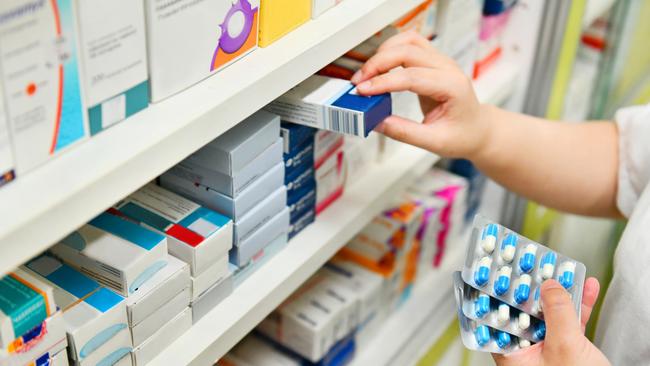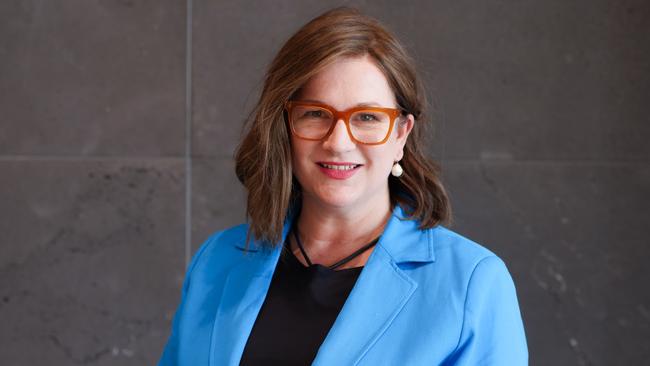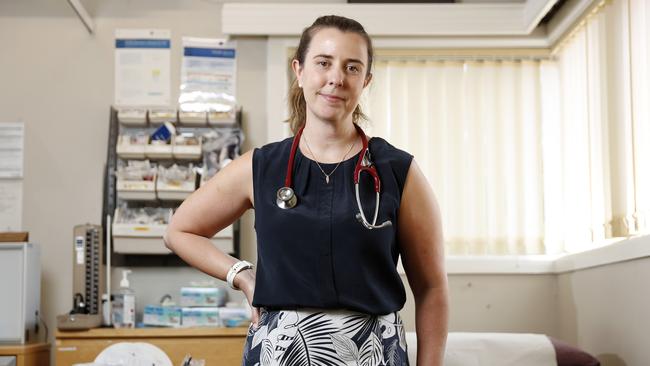Calls to increase medicine manufacturing in Australia as nation faces shortage
Angry Australians have called for change as the nation faces a “dire” shortage of over 400 medicines.

Health
Don't miss out on the headlines from Health. Followed categories will be added to My News.
Australians have slammed the government for relying on international supply for medicine instead of manufacturing locally as the nation faces a “dire” shortage.
It was revealed earlier this week that patients hadn’t been able to get their scripts filled and some were cutting capsules in half and measuring out the powder inside for the correct dose.
More than 100 readers said the government had fallen short of addressing the issue, which has only worsened over the months, calling on more domestic manufacturing of medicine.
“In 2024 there should be no commonly used medicine that can’t be actively produced in Australia even in a small quantity,” one wrote.
Another said: “Bring back manufacturing to Australia. Reliability over cost...it’s appalling.”
Another agreed: “Medicines need to made in Australia first. We shouldn’t totally rely on importing or other nations supplying us as if there was a shortage or disaster we would be cut off on supply.”

One woman even admitted she couldn’t get any of her prescribed medication.
“I had to stop abruptly against medical advice. This is third world stuff,” she wrote.
There are currently 424 medicines that are unavailable listed on the Therapeutic Goods Administration’s (TGA) website, up from 380 in March.
This includes 40 medicines in critically short supply such as blood thinners warfarin and heparin and xylocaine which is used to reduce pain in childbirth.
Other drugs in short supply include some of the most commonly used medicines in the country such as cholesterol lowering rosuvastatin and atorvastatin, antidepressants fluoxetine and escitalopram and pain medication pregabalin.
Women who need hormone replacement therapies (HRT) for strengthening bones and managing menopause symptoms are having to endure hot flushes, insomnia, headaches, mood swings, fatigue, aches and pains because these medicines are in short supply.
Pharmaceutical company Bayer ceased production of its hormone patch Climara in late 2023 and the three other types of HRT patches available in Australia are on the drug shortages list.
A key alternative HRT medication which uses a gel is not funded by the nation’s medicines subsidy scheme and costs $50 a month.

Royal Australian College of General Practitioners president Dr Nicole Higgins said desperate patients were cutting up their medications to stretch them out due to the shortage.
“Patches for menopause, for example are being cut in half, which impacts their safety, things such as blood thinners people have to use smaller doses to make up a full dose which increases the risk of overdosing and having side effects,” Dr Higgins said.
Melbourne GP Dr Mukesh Haikerwal said cutting pills was risky.
“If you drop some or you miss some because it went on the floor, cutting pills or getting different sizes it can have quite a significant reaction if you drop too quickly. It’s really important to get the drug doses right,” Dr Haikerwal said.
Australian Medical Association vice president Dr Danielle McMullen said “when you look at the TGA website, it looks like it should be fairly straightforward for pharmacists to be able to contact an alternate supplier and get an alternate medicine while the shortage is in place”.
“But I agree that anecdotally on the ground, that’s not always happening,” she said.

The Royal Australasian College of Physicians (RACP) is calling for urgent action to address medicine shortages.
“This is a major vulnerability in our healthcare system and it must be addressed with urgency,” RACP president Professor Jennifer Martin said.
“Australia is particularly vulnerable because we import around 90 per cent of our medicines,” Prof Martin said.
The drastic shortages are occurring despite the government paying drug companies millions to guarantee supply under a deal that commenced in 2022.
Under the deal the price of 900 medicines rose in price by up to 400 per cent.
In return, generic medicine companies promised to keep 4-6 months’ supply of the medicines in the country.
The nation’s biggest selling anti-cholesterol drugs jumped in price – Atorvastatin, from $2.95 (ex-manufacturer) to $3.45, and Rosuvastatin, from $1.70 to $2.50 as a result of the deal.
Yet these are the very medicines that are currently unavailable.
Dennis Bastas the boss of the largest generic medicines supplier in Australia — Arrotex – has proposed a plan to manufacture 120 key medicines in Australia.
It would require a $1.5 billion Medicine Manufacturing Future Fund supported by the government, superannuation funds and the pharmaceutical industry.

“It’s something we should be investing in, it’s pretty much jobs for Australia brings production to Australia and you know, it could be an export industry,” Dr Haikerwal said.
Dr Higgins said Australia had to ensure essential medications were available.
“We can have the best health care system or one of the best health care systems in the world. But if we don’t have the medications that we need to support that, then it makes it futile,” she said.
A spokeperson for Health Minster Mark Butler said the problem of medicine shortages was not unique to Australia.
“They may arise for many reasons ranging from shortages of raw materials to natural disasters, logistical difficulties, batches of the medicine not meeting applicable specifications, or increased demand,” the spokesperson said.
‘The Albanese Government is committed to increasing Australia’s sovereign manufacturing capacity in medical essentials through the establishment of the $15 billion National Reconstruction Fund (NRF),” the spokesperson said.
The NRF will make medical technology one of its priorities and work with the Future Made in Australia Office to develop a national investment plan for health care essentials, which will identify what needs to be made in Australia and how to make that happen, the spokesperson said.
More Coverage
Originally published as Calls to increase medicine manufacturing in Australia as nation faces shortage



